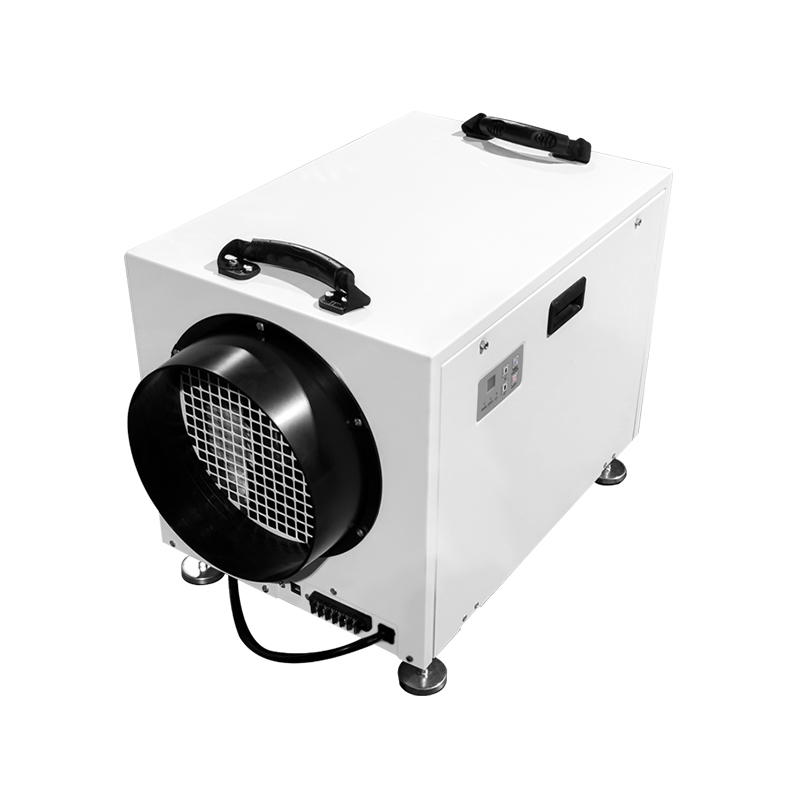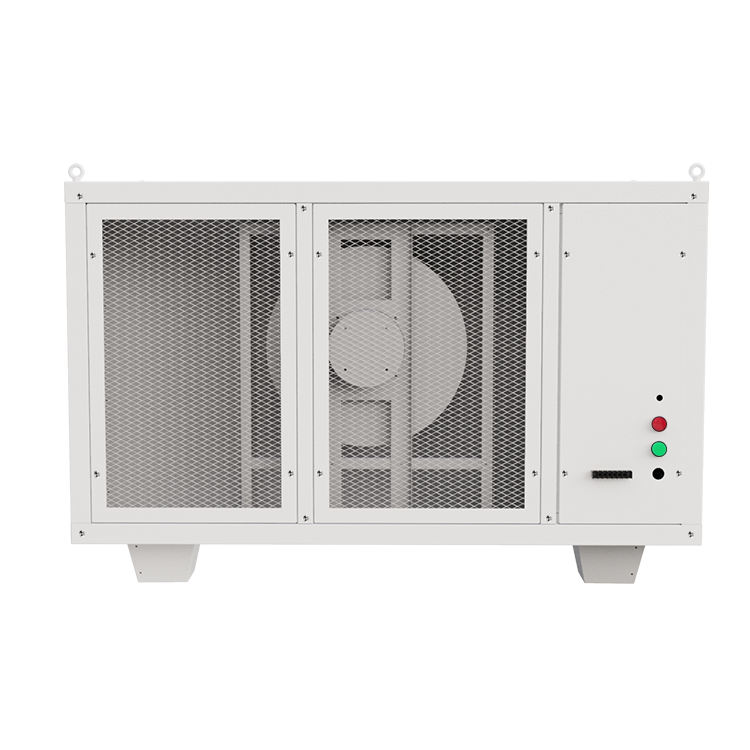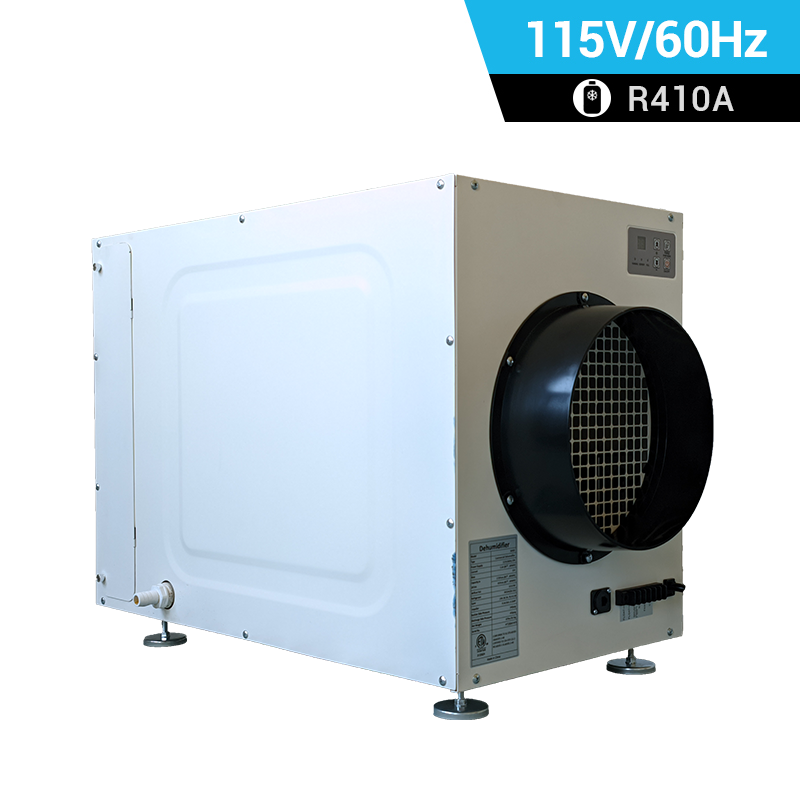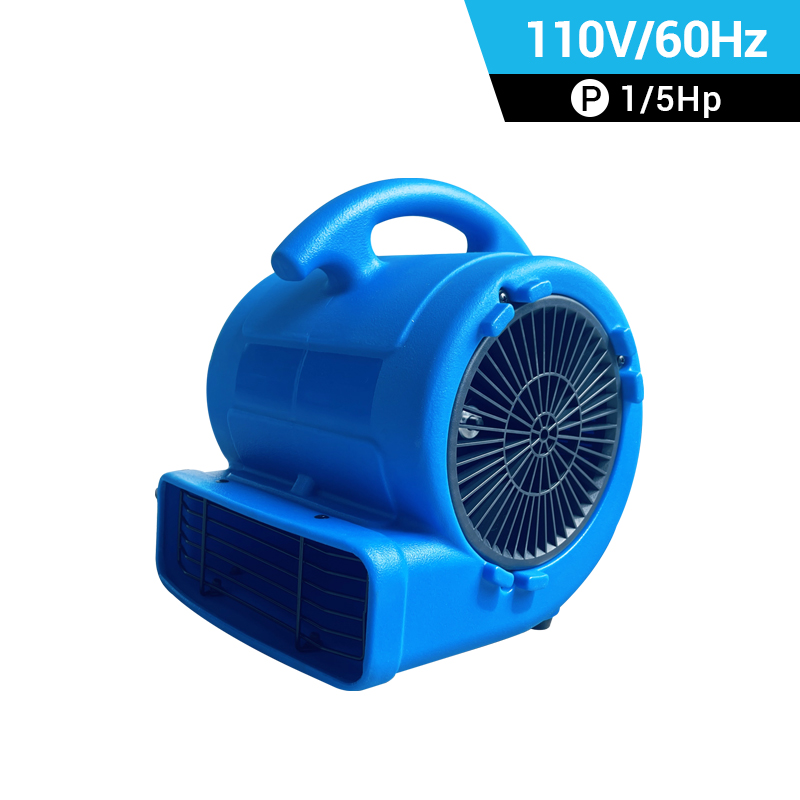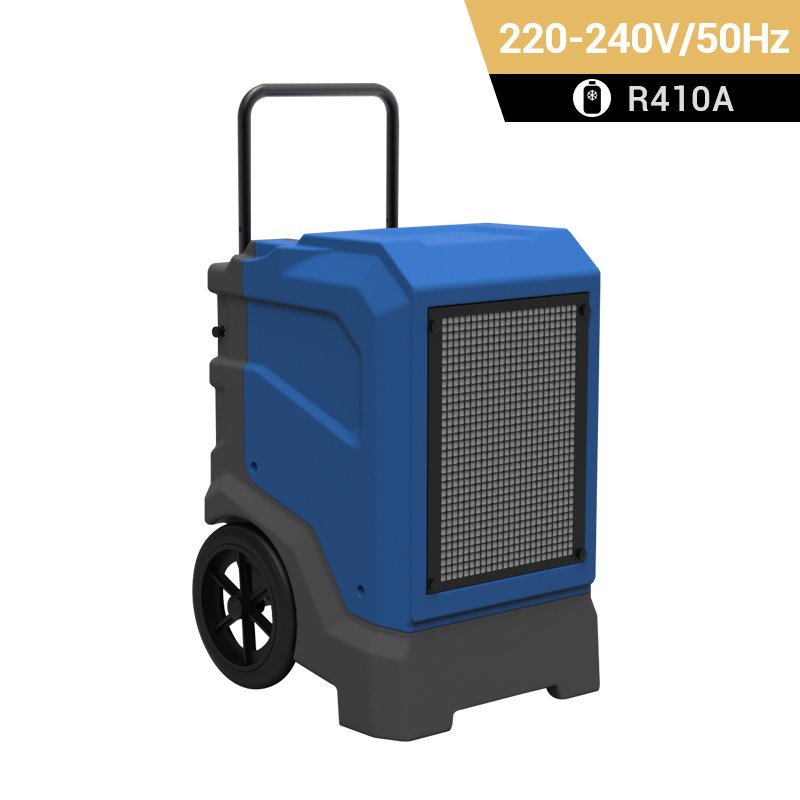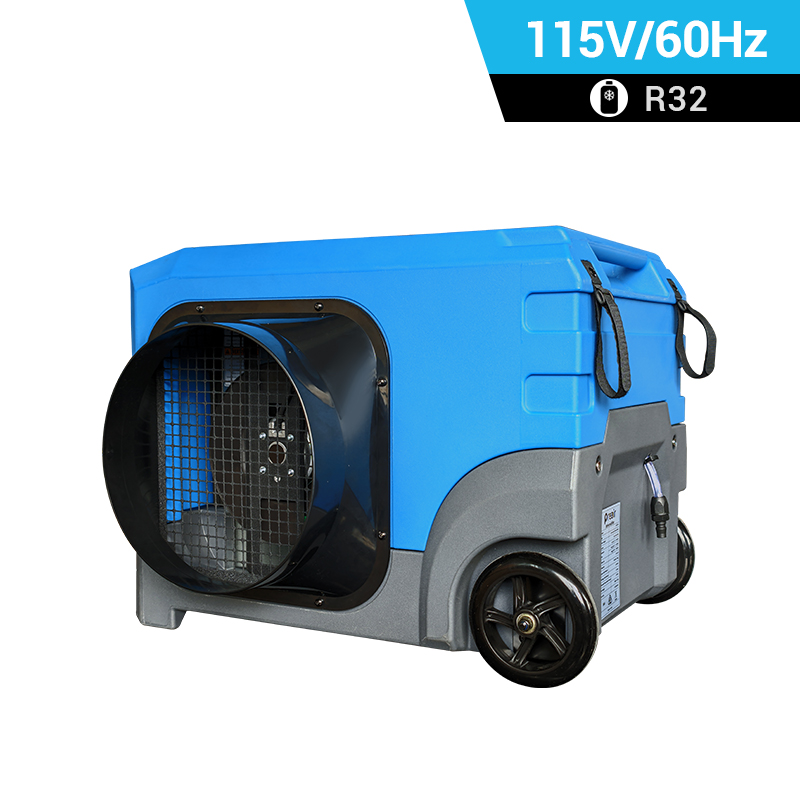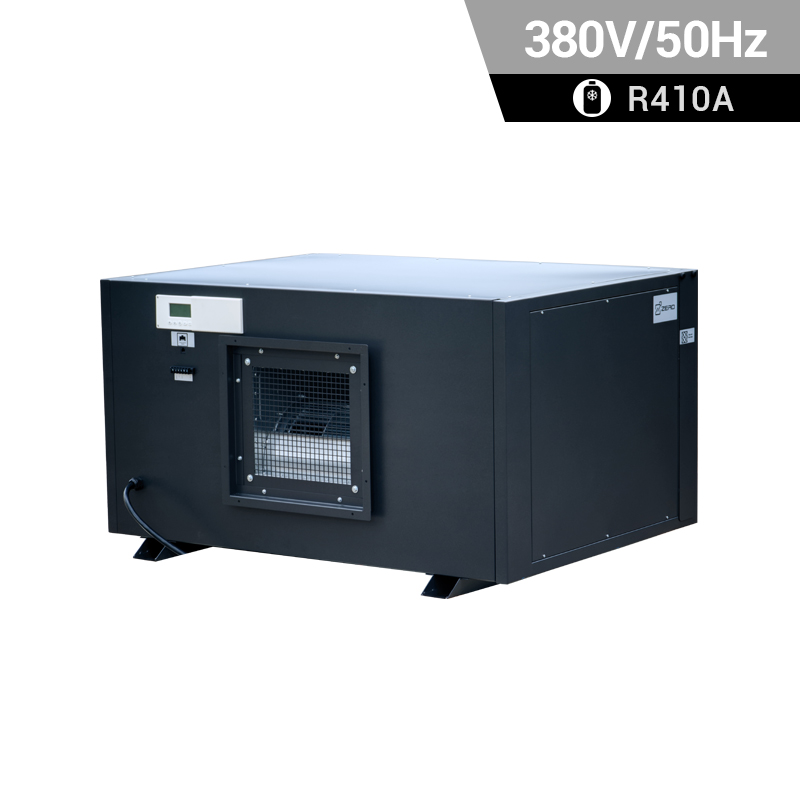Industrial Dehumidifier For Sale
In the food industry, controlling humidity is crucial for maintaining product quality, preventing spoilage, and ensuring food safety. Large-capacity dehumidifiers play a significant role in creating optimal storage conditions for various food products. When selecting a dehumidifier for the food industry, consider the following features:
-
Capacity and Coverage:
- Choose an industrial dehumidifier with a capacity suitable for the size of the food storage area. Consider the volume of the space and the specific moisture removal needs of the products being stored.
-
Humidity Control:
- Opt for a dehumidifier with precise humidity control settings. Different food products may require specific humidity levels for optimal storage, and having control over this parameter is essential.
-
Energy Efficiency:
- Select an energy-efficient model to minimize operational costs. Energy efficient dehumidifiers can help reduce overall expenses in large-scale industrial settings.
-
Airflow and Distribution:
- Ensure that the dehumidifier has sufficient airflow and distribution capabilities to cover the entire storage facility. Proper air circulation is essential for maintaining consistent humidity levels.
-
Temperature Control:
- Some dehumidifiers come with integrated temperature control features. Maintaining the right temperature alongside humidity control is important for preserving the quality of food products.
-
Condensate Removal:
- Consider a dehumidifier with an effective condensate removal system. Options may include automatic drainage or the integration of pumps to handle large amounts of collected water.
-
Hygienic Design:
- Choose a dehumidifier with a design that meets food industry hygiene standards. Stainless steel or corrosion-resistant materials are often preferred for easy cleaning and to prevent contamination.
-
Air Filtration:
- Select a dehumidifier with high-quality air filtration systems to improve air quality within the storage facility. This is important for maintaining a clean environment and preventing the spread of contaminants.
-
Remote Monitoring and Control:
- If possible, choose a dehumidifier with remote monitoring and control capabilities. This allows for convenient monitoring and adjustment of humidity levels from a central location.
-
Maintenance Accessibility:
- Opt for a dehumidifier for food with easily accessible components for regular cleaning and maintenance. Regular upkeep is crucial for ensuring the longevity and efficiency of the unit.
-
Compliance with Food Safety Standards:
- Verify that the dehumidifier complies with relevant food safety standards and regulations. This ensures that the unit is suitable for use in food processing and storage areas.
-
Security Features:
- Consider security features such as tamper-resistant controls to prevent unauthorized access to the dehumidifier settings.
-
Integration with HVAC Systems:
- Some industrial dehumidifiers can be integrated into existing heating, ventilation, and air conditioning (HVAC) systems for enhanced control over environmental conditions.
-
Durability:
- In a demanding industrial environment, durability is key. Choose a dehumidifier with robust construction and components that can withstand the conditions of the food industry.
Before making a purchase, it's advisable to consult with experts in industrial dehumidification or food safety to ensure that the selected unit meets the specific needs and regulations of the food industry.
Related Products

Top Selling Products
-

Phone
-

E-mail
-

Facebook
-

Youtube
-

Top



